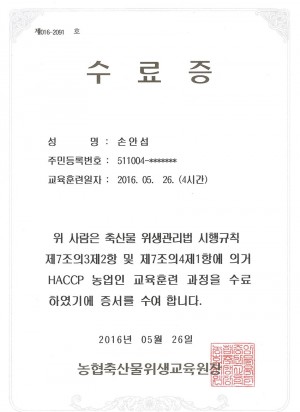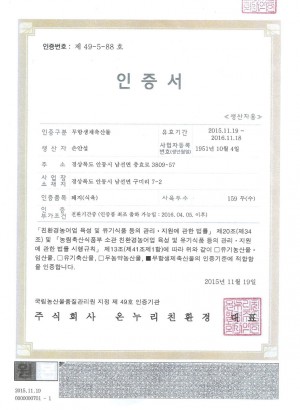[등심]10 Top Facebook Pages Of All Time About Accident Boat
86
2023.03.05 02:19
짧은주소
본문
What Happens If You Are Injured in a Boat Accident?
You could be eligible for compensation if you or someone in your family has been injured in a boat accident. An attorney for personal injuries can assist you in determining who was at fault and the amount of damages you're entitled to.
Many boating accidents occur due to operator inattention. This is particularly relevant when the boater is under the influence of alcohol or other drugs.
Falling Overboard
The boating lifestyle is a pastime that many people enjoy, but it's important to remember that accidents can happen on the water. A common accident that can cause serious injuries is slipping overboard.
In addition to drowning, a fall overboard can also lead to hypothermia and dehydration. These are especially dangerous when it's dark or cold and can be fatal if not treated.
There are a few things you can do in this type of situation to increase your chances of survival. This includes staying calm and above water and wearing a life vest. You should also make sure that you keep your clothes on all the time.
A cruise ship has an emergency procedure which can save your life in the event that you fall overboard. The crew should be informed promptly so they can put life-saving buoys in the water to mark where the person fell.
This is typically done in daylight when visibility is good. But in the dark, it can be difficult to locate and save a person who has fallen off the columbia boat Accident attorneys.
Be sure to shout "Man Overboard!" to alert the rest. After that they will sound an alarm on the bridge and gather the crew to prepare for a search and rescue mission.
Once the rescue crew is on board they will attempt to locate the person who went overboard. Once they do find them, the rescuers will attempt to get them out of the water as swiftly as they can.
A person who has been thrown into the water can be frightening. It is important to remember that a skilled and knowledgeable rescue team is available to assist you. If you remain at peace and follow their instructions, they can save your life.
The best method to avoid falling overboard is to always wear a life jacket whenever you're on an inflatable boat. You should also stay away from standing on the deck when you can help it. It is easy to fall and slip on the decks of larger vessels, especially in rough weather or high winds.
Drowning
Drowning is one of the types of water-related injury that is caused by exposure to water and is common in freshwater areas or in the ocean. It is the most frequent cause of death and injury to both children and adults across the globe.
There are a variety of ways to avoid drowning including enhancing flood resilience and education of children about the dangers of water, and increasing access to emergency evacuation services. If you happen to be in the boat with someone who is having trouble, you can perform cardiopulmonary resuscitation (CPR) to aid them in regaining their breath and circulation.
The process of drowning begins with panic attacks and breathing problems. The person will have difficulty staying above the water and might try to thrash or splash. They may also wave or make a noise.
A person will eventually stop struggling and stop trying to pull air out of their lungs. This is to stop water from getting into the trachea. They may experience hypoxemia, which can cause involuntary unconsciousness or loss of consciousness.
This is the beginning stage in drowning. It usually takes between 2 and 3 minutes for adults. During this period, the skin may look pale or blue , and the organs will not receive enough oxygen-rich blood.
When the body becomes unconscious it will continue to be unconscious for at least 6 minutes until breathing is restored. It's a very risky situation, and you must seek medical attention immediately.
Once the victim is in this stage of drowning, it's essential to keep them on their backs and a flat surface. This will enable you to lift them up and put them into a recovery position.
The best method to handle the person is to make them a call and talk to them in a calm manner. Continue to monitor their breathing until an ambulance arrives.
You can also help the person who has drowned by securing them in a reclined position and then warming them up using dry clothes or blankets. If you need to, call an ambulance to offer further assistance.
Capsized Vessel
In a boat accident, Columbia boat Accident attorneys a vessel can capsize. This is a huge concern because it could be extremely hazardous for both the passengers as well as cargo. In some cases, accidents cause the death of a person or injuries.
In most cases, capsizing is due to the overloading of a vessel or the failure to properly balance its weight. These issues can be resolved by balancing or reducing the load.
Weather is another major reason for capsizing. Even small boats can be easily overwhelmed by small waves or wakes especially when they are of water and are low in the water. A sudden squall could flip larger boats so make sure you check the weather forecast prior to you set out.
Certain boats also come with internal buoyancy. This helps to keep the boat afloat in the event of a capsize or a flood. This aids in the rescue of people and ensures everyone's safety.
A good seamanship experience and knowing your limits is the best way to avoid capsizing. This is crucial for both recreational and commercial vessels and can prevent many fatal accidents.
It is essential to remain at a safe distance and conserve energy in case you are in a capsized vessel. Also, be sure to make sure to count everyone on the boat and ensure that everyone is wearing life jackets.
It is also a good idea to stay with the vessel. This is because it will be easier for rescuers to find a capsized vessel than an individual swimmer.
As an option you could consider relocating the vessel in the event of a capsize and try to reach a nearby beach or island. But be aware that even the most experienced swimmers can become exhausted or hypothermic in just a short swimming.
It is a good idea to have an Emergency Position Indicating Radio Beacon (EPIRB) and distress flares available on the boat in case you require it. They can increase visibility and alert other aircrafts to your presence on the water.
Passengers Who Overboard
It is extremely risky for a passenger to fall overboard. The person could die if fall in waters that are colder than the surrounding sea or seriously injured. It could take hours or even days for an drowned person to be identified and rescued.
While the majority of incidents involving overboard are caused by alcohol, they can also be accidental too. One example: A man fell on a table and was thrown to the ocean while the ship was moving at a rapid pace on cruise.
Although the majority of these incidents don't result in death but they can be frightening to see. It is essential to know how to help someone get out of the water should they go too far.
It is a good rule of thumb to lower your center of gravity and pull a passenger from the water using both hands. This will help you keep your balance and prevent you from going overboard.
If you are not able to get the passenger out of the water on by yourself, it is crucial to seek help from other passengers. This will increase your chance of locating them and saving their life.
It is recommended to place a life ring towards the person who has swam overboard. This will increase your chances of rescue. This will help mark the location they've been swept away so that crew members can locate them more efficiently.
It is also a good idea to assign others to keep an eye on the person aboveboard. This can make it easier to steer back to the helmsman, and to draw their gaze when they are asleep or sink.
It is crucial to have a plan and educate your crew on how to perform this task in the event of an accident. This is particularly important in the event of a boating accident in dangerous water or if your boat is traveling at a high speed that is difficult to control.
Fortunately, a lot of ships have special sensors that can alert the crew in the event that a passenger has fallen overboard. This is particularly helpful when the person is not visible and the water is extremely cold.
You could be eligible for compensation if you or someone in your family has been injured in a boat accident. An attorney for personal injuries can assist you in determining who was at fault and the amount of damages you're entitled to.
Many boating accidents occur due to operator inattention. This is particularly relevant when the boater is under the influence of alcohol or other drugs.
Falling Overboard
The boating lifestyle is a pastime that many people enjoy, but it's important to remember that accidents can happen on the water. A common accident that can cause serious injuries is slipping overboard.
In addition to drowning, a fall overboard can also lead to hypothermia and dehydration. These are especially dangerous when it's dark or cold and can be fatal if not treated.
There are a few things you can do in this type of situation to increase your chances of survival. This includes staying calm and above water and wearing a life vest. You should also make sure that you keep your clothes on all the time.
A cruise ship has an emergency procedure which can save your life in the event that you fall overboard. The crew should be informed promptly so they can put life-saving buoys in the water to mark where the person fell.
This is typically done in daylight when visibility is good. But in the dark, it can be difficult to locate and save a person who has fallen off the columbia boat Accident attorneys.
Be sure to shout "Man Overboard!" to alert the rest. After that they will sound an alarm on the bridge and gather the crew to prepare for a search and rescue mission.
Once the rescue crew is on board they will attempt to locate the person who went overboard. Once they do find them, the rescuers will attempt to get them out of the water as swiftly as they can.
A person who has been thrown into the water can be frightening. It is important to remember that a skilled and knowledgeable rescue team is available to assist you. If you remain at peace and follow their instructions, they can save your life.
The best method to avoid falling overboard is to always wear a life jacket whenever you're on an inflatable boat. You should also stay away from standing on the deck when you can help it. It is easy to fall and slip on the decks of larger vessels, especially in rough weather or high winds.
Drowning
Drowning is one of the types of water-related injury that is caused by exposure to water and is common in freshwater areas or in the ocean. It is the most frequent cause of death and injury to both children and adults across the globe.
There are a variety of ways to avoid drowning including enhancing flood resilience and education of children about the dangers of water, and increasing access to emergency evacuation services. If you happen to be in the boat with someone who is having trouble, you can perform cardiopulmonary resuscitation (CPR) to aid them in regaining their breath and circulation.
The process of drowning begins with panic attacks and breathing problems. The person will have difficulty staying above the water and might try to thrash or splash. They may also wave or make a noise.
A person will eventually stop struggling and stop trying to pull air out of their lungs. This is to stop water from getting into the trachea. They may experience hypoxemia, which can cause involuntary unconsciousness or loss of consciousness.
This is the beginning stage in drowning. It usually takes between 2 and 3 minutes for adults. During this period, the skin may look pale or blue , and the organs will not receive enough oxygen-rich blood.
When the body becomes unconscious it will continue to be unconscious for at least 6 minutes until breathing is restored. It's a very risky situation, and you must seek medical attention immediately.
Once the victim is in this stage of drowning, it's essential to keep them on their backs and a flat surface. This will enable you to lift them up and put them into a recovery position.
The best method to handle the person is to make them a call and talk to them in a calm manner. Continue to monitor their breathing until an ambulance arrives.
You can also help the person who has drowned by securing them in a reclined position and then warming them up using dry clothes or blankets. If you need to, call an ambulance to offer further assistance.
Capsized Vessel
In a boat accident, Columbia boat Accident attorneys a vessel can capsize. This is a huge concern because it could be extremely hazardous for both the passengers as well as cargo. In some cases, accidents cause the death of a person or injuries.
In most cases, capsizing is due to the overloading of a vessel or the failure to properly balance its weight. These issues can be resolved by balancing or reducing the load.
Weather is another major reason for capsizing. Even small boats can be easily overwhelmed by small waves or wakes especially when they are of water and are low in the water. A sudden squall could flip larger boats so make sure you check the weather forecast prior to you set out.
Certain boats also come with internal buoyancy. This helps to keep the boat afloat in the event of a capsize or a flood. This aids in the rescue of people and ensures everyone's safety.
A good seamanship experience and knowing your limits is the best way to avoid capsizing. This is crucial for both recreational and commercial vessels and can prevent many fatal accidents.
It is essential to remain at a safe distance and conserve energy in case you are in a capsized vessel. Also, be sure to make sure to count everyone on the boat and ensure that everyone is wearing life jackets.
It is also a good idea to stay with the vessel. This is because it will be easier for rescuers to find a capsized vessel than an individual swimmer.
As an option you could consider relocating the vessel in the event of a capsize and try to reach a nearby beach or island. But be aware that even the most experienced swimmers can become exhausted or hypothermic in just a short swimming.
It is a good idea to have an Emergency Position Indicating Radio Beacon (EPIRB) and distress flares available on the boat in case you require it. They can increase visibility and alert other aircrafts to your presence on the water.
Passengers Who Overboard
It is extremely risky for a passenger to fall overboard. The person could die if fall in waters that are colder than the surrounding sea or seriously injured. It could take hours or even days for an drowned person to be identified and rescued.
While the majority of incidents involving overboard are caused by alcohol, they can also be accidental too. One example: A man fell on a table and was thrown to the ocean while the ship was moving at a rapid pace on cruise.
Although the majority of these incidents don't result in death but they can be frightening to see. It is essential to know how to help someone get out of the water should they go too far.
It is a good rule of thumb to lower your center of gravity and pull a passenger from the water using both hands. This will help you keep your balance and prevent you from going overboard.
If you are not able to get the passenger out of the water on by yourself, it is crucial to seek help from other passengers. This will increase your chance of locating them and saving their life.
It is recommended to place a life ring towards the person who has swam overboard. This will increase your chances of rescue. This will help mark the location they've been swept away so that crew members can locate them more efficiently.
It is also a good idea to assign others to keep an eye on the person aboveboard. This can make it easier to steer back to the helmsman, and to draw their gaze when they are asleep or sink.
It is crucial to have a plan and educate your crew on how to perform this task in the event of an accident. This is particularly important in the event of a boating accident in dangerous water or if your boat is traveling at a high speed that is difficult to control.
Fortunately, a lot of ships have special sensors that can alert the crew in the event that a passenger has fallen overboard. This is particularly helpful when the person is not visible and the water is extremely cold.















댓글목록
등록된 댓글이 없습니다.